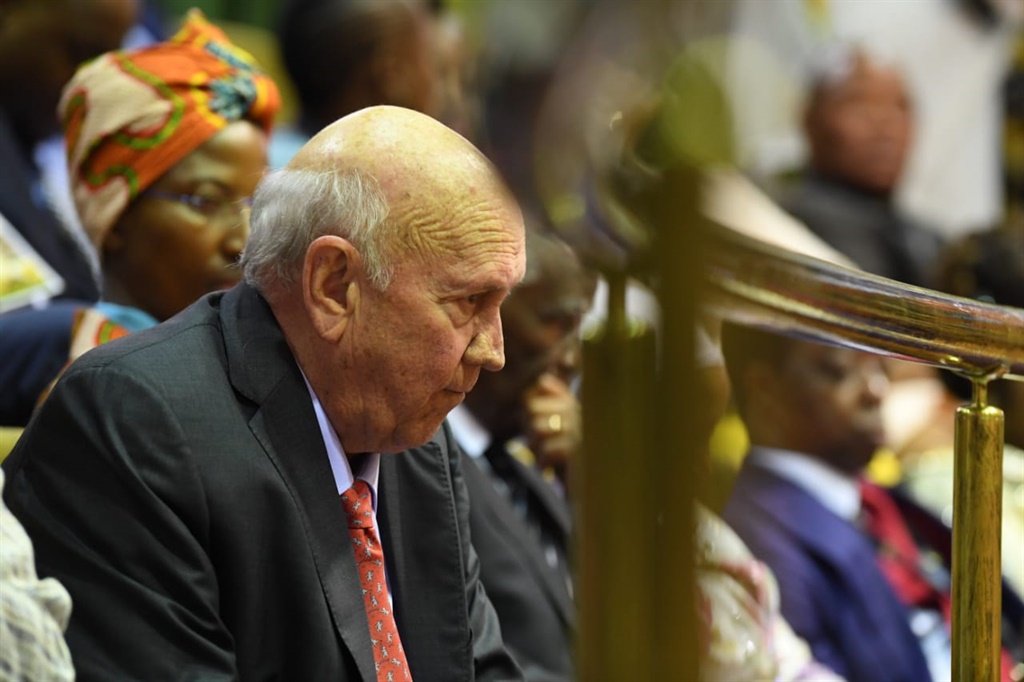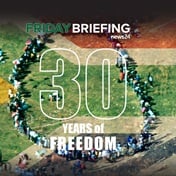
Accepting the apology would be premised on consistency and the resolve to promote social cohesion and nation building. After all, Africans in general and South Africans, in particular, are a forgiving people, writes Bheki R Mngomezulu
There is a very thin line between playing politics and playing ignorant.
When former President FW de Klerk claimed that apartheid "was not a crime against humanity", was he being honest?
Was he playing politics or was he playing ignorant?
If he was indeed ignorant, who has now educated him about this shameful history of South Africa, which has warranted his public apology?
Is this an honest apology or is it his way of putting off the fires following the responses he has received from different stakeholders?
Importantly, how should South Africans take this apology and why?
These are some of the pertinent questions which beg for answers.
Firstly, De Klerk was a seasoned politician who held different positions under apartheid.
Secondly, he was the last president of apartheid South Africa.
Thirdly, he served as the second vice-president together with Thabo Mbeki in the government of national unity under President Nelson Mandela.
These positions mean that there is no way that he would not have known that on 6 November 1962, the UN General Assembly, through Resolution 1761, condemned apartheid policies.
He is also supposed to have known that in 1973, Resolution 3068 declared apartheid "a crime against humanity".
In fact, article 2 went further to state that "The States Parties to the present Convention declare criminal those organisations, institutions and individuals committing the crime of apartheid".
Now, to argue that there was no genocide in apartheid South Africa was disingenuous and also unwittingly sustained social Darwinism which portrayed black people as sub-human.
De Klerk’s statement has unnecessarily divided the South African nation and opened the wounds that were beginning to heal.
In fact, his statement is inimical to government's effort to promote social cohesion and nation building.
Those of us who are making relentless efforts to move this country forward feel let down.
Former President Thabo Mbeki reported that he had a meeting with De Klerk following his statement.
According to Mbeki, De Klerk stated that he was not aware of the UN Resolutions referred to above.
Very few people would believe that.
Anyway, all of that is now history since De Klerk has apologised.
But, how should South Africans respond to this apology?
This is the bone of contention. This question should be answered in context.
Helen Zille tweeted, saying that colonialism was not entirely bad.
She went on to enumerate some of colonialism's contributions to society.
Although she defied Mmusi Maimane when he asked her to apologise, she pretended to be apologising once the DA’s Federal Council intervened.
South Africans put the issue behind them and moved on.
A few weeks ago, Patrice Motsepe told America's President Donald Trump that "Africa loves you".
It was not clear where Motsepe derived his mandate from.
Realising that he had offended many Africans, he rendered an apology and he was pardoned.
For consistency sake, it would be advisable to take De Klerk’s apology in the same light.
Accepting his apology would not be tantamount to saying that South Africans believe that he did not know that apartheid was evil and that it was declared a crime against humanity by the UN.
Conversely, accepting the apology would be premised on consistency and the resolve to promote social cohesion and nation building. After all, Africans in general and South Africans, in particular, are a forgiving people.
What message can we derive from this De Klerk saga?
Firstly, politicians should think before they say something - especially on issues as sensitive as apartheid which took many innocent lives.
One can only hope that De Klerk learnt his lesson.
Secondly, politicians should constantly seek advice before making public statements.
Thirdly, those politicians who are at an advanced stage of their lives should refrain from making public statements unless they are forced to do so.
This would protect their integrity.
Fourthly, they should think about the image of the institutions they are associated with.
Lastly, senior citizens should invest their time cleaning the legacy they will bequeath to the nation. What has happened to De Klerk should be a warning to others.
But, without being emotional about this incident, one needs to put things into perspective.




 Publications
Publications
 Partners
Partners























